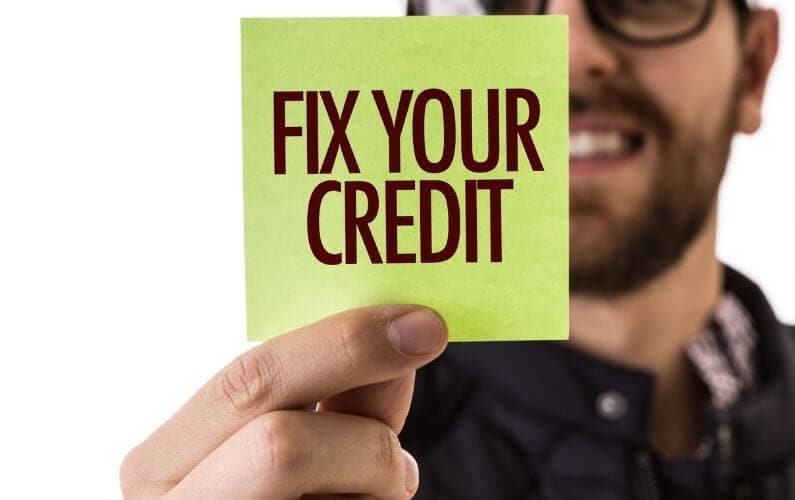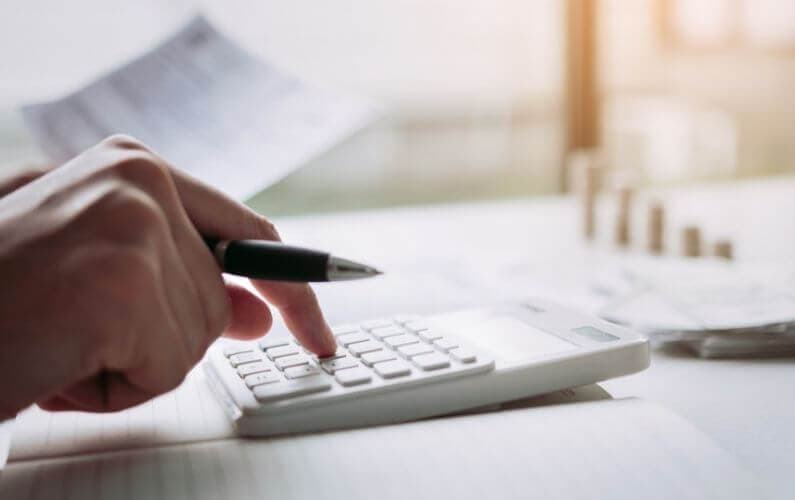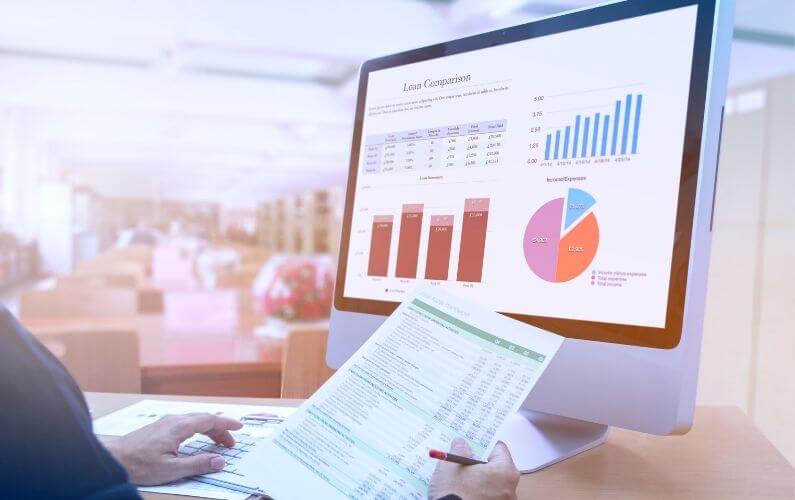
When times are tough, the right personal finance tips can make things easier.
And there’s no doubt about it, times are tough! It wasn’t that long ago that we were all going through the financial crisis of 2008. Then, just as the world was finding its feet again…
BAM!
…along came the Coronavirus.
Hard times will keep coming, but we’ve got a number of tried and true personal finance tips that can get you back on the right track!
Let’s get started!
Make Extra Money
I know, I know…this one’s obvious. When times are hard, the first thing everyone looks for ways to make more money!
Luckily, these days it’s easier than ever to earn extra income! Here are a few tips to help you get started!
As long as you’re in the house watching Netflix, you might as well use that time to earn a little extra income, right?
Well, survey sites like Pinecone Research and Survey Junkie will pay you money to share your personal opinion from the comfort of your own home!
Other sites like Inbox Dollars, pay you to watch videos and play games!
If you need some extra money, make sure you sign up for one (or more) of these sites.
Surveys you can use to make extra cash fast!
2. Pick Up a Side Hustle
One of the most popular personal finance tips out there is to find multiple sources of income. So, why not open an Etsy account and turn your hobby into a side hustle?
If you don’t have a hobby that produces a sellable product, you can still earn money by flipping things on eBay and Amazon. Either way, it’s possible to make some extra money every month!
Another side hustle idea is to deliver things with Post Mates. In our post-coronavirus world, so many people are ordering take out, choosing curbside pickup, and getting at home-deliveries.
So now would be a great time for you to get in on the action and make money with Post Mates and other side hustle ideas!
Pick a side Hustle you can start today!
- Start a blog that make money
- Deliver with Postmates
- Walk dogs with Rover to make extra cash
3. Ask For a Raise
Why not?
After all, if you truly think you’re worth more money, your boss might think the same!
Unless you’re incredibly lucky, it’s unlikely that your boss will come running up to give you more money. So, if you want that extra income, you’ll have to ask for it and make a convincing argument!
Pro tip: If you are not sure how to ask for a raise. Skillshare is one of the best learning platforms you can use to learn how to ask for a raise with their videos about negotiations. Check out skillshare here.
Understanding Money and Credit

It hardly needs to be said, but money and credit are a major part of finance! Personal finance management hinges on your ability to understand money and credit!
This list of personal finance tips will help you to help you get more control of your finances.
4. Read Personal Finance Books And Blogs
You’d be surprised how often this finance tip is ignored!
Most people wouldn’t try to become a nurse or accountant without opening a few books on the subject. But so many people try to manage money, grow wealth without learning about personal finance!
It’s important to study, but you don’t need to buy thousands of dollars of books to get financial advice. You can get them for free from your local library., download them on the internet for free, or buy them for a cheaper price on Amazon.
You can also find finance tips online from blogs like this one!
Make sure you don’t neglect this tip! It’s important to learn about the world of money and credit if you want to become financially secure.
Related post: Best 10 personal finance books you must read an master.
5. Understand Your Credit Score
In the world of personal finance, there are few things more crucial than your credit score. That’s why it’s important to understand how it works!
If you have no idea how credit scores work, we’ve got a post you can check out to learn more! But in a nutshell, your score will affect
- your ability to get a credit card or loan,
- the interest rates you’ll be charged,
- which apartments you’ll be approved for
- and maybe even the job you can get!
There’s no doubt about it, your credit score and credit report are huge factors in your financial life!
Related Post: What to do about insufficient credit history.
6. Raise Your Credit Score
Generally, a credit score of 700 or above is considered a good credit score by most lenders. But what if you’re below that? How can you improve it?
To improve it, you have to start by knowing what’s in your credit report.
- You can get a free annual credit report from freeannualreport.com.
- Or, you can buy your credit report and official credit score from myFico.
- Or, you can sign up with Credit Sesame or Credit Karma to see what’s in your credit report right on your smartphone!
After checking your credit report, you’ll have a better idea of what you need to do to get good credit.
Generally,
- Using more than 30% of your available credit isn’t good for your score.
- Applying for multiple credit cards or loans back to back will hurt your score
- Missing payments will also hurt your score
If you want to learn more about improving your score, we’ve got a detailed post for you!
Related post: How to increase your credit score by 200 points.
7. Check Your Credit Score Often
Many people believe that checking your credit score often will negatively affect your score. But that’s not necessarily true.
If you ask about your own credit score it won’t affect your score. So there’s no reason not to check your score with companies like myFico.
I’d hate to kick a dead horse, but Credit Sesame and Credit Karma are both free apps that will show you your scores at any time!
I actually have both of these apps, and I use them often. (There are some differences between them that make it worth downloading both).
Again, I can’t stress how essential staying on top of your credit score is to your financial health.
8. Review Your Bank Statements Often
Most people don’t keep track of their net worth or their spending habits. Instead, we expect our banks to keep a perfect record of what we did with our money during the month.
Most of the time, the bank does a pretty good job. But it’s important to remember that people work at the banks, and people make mistakes.
When you review your bank statements and compare them to your own records (and you should be keeping records), you can catch any mistakes.
Reviewing your bank statements also lets you catch any fraudulent activity before it gets way out of control and does real damage to your personal finances.
Finally, if you’re like most people, you probably have a lot of subscriptions that automatically withdraw cash from your account. It’s easy to forget about these subscriptions and regularly reviewing your accounts will help you stay on top of your spending budget.
9. Understand Your Taxes
When tax time comes around, are you always surprised when you get a refund or when you owe money?
If so, look and see what tax bracket you’re in, figure out how many exemptions you should claim, and study anything else that affects your tax payments.
You don’t need to be a tax expert, but getting a basic understanding of the tax system can help you control your money better instead of being surprised.
Money Management

There is an old saying you may have heard, and it goes like this – “Look after the pennies and the pounds will look after themselves.”
In its simplest form, that’s all money management is! In this section, we’ll give you a number of personal finances tips to help you look after your pennies!
10. Start a Personal Budget
A budget is an estimate of your income and expenses over a period of time (usually until the end of the week or end of the month).
Your budget is also an invaluable tool for getting control of your personal finance and reaching your financial goals.
For example, with your budget, you can project how long it’ll take you to save money for a vacation. Or you can calculate how long it’ll take you to pay off your credit card debt.
Starting a budget doesn’t have to be difficult either. You could use good old fashioned pen and paper to create your budget, an Excel spreadsheet, or you could use budgeting apps like Dave Ramsey’s EveryDollar app.
11. Track Your Expenses to Know Where Your Money is Going
One of my favorite personal finance tips is tracking expenses. By doing this every month, you can identify poor spending habits, eliminate wasteful spending, and start saving money.
The old fashioned way to track expenses is to save each of your receipts, sort them into categories and add them up at the end of the month. That’ll let you know exactly how much you spent on food, entertainment, etc.
But this is the 21st century! You don’t need to do that when there are apps that can do it for you!
Apps like Personal Capital and Empower can easily track your spending, keep you on track to reach your financial goals. They’re also great tools to check out if you’re saving for retirement.
12. Track Your Net Worth
Another great finance tip is to keep track of your net worth. Your net worth is simply your assets (house, investments, bank accounts, etc.) minus your liabilities (debt).
Not many people follow this one, but if you don’t keep track, you won’t know if your wealth is moving in the right direction!
Your net worth is a crucial part of your overall financial health. It’ll keep track of your savings grow as well as how much debt you’ve paid off.
13. Use Cash Only
Most banks have some sort of overdraft protection for your debit card. So, when you don’t have enough money in your check account, the money is automatically taken out of your savings account.
This has caused so many savings accounts to be drained. And it’s why putting away the card and using cash is one of the best tips to save money.
People also tend to spend more in general when they use a bank or credit card. But when you use cash, you’re limited to the money in your wallet. You’re also less likely to spend because you actually feel the pain of spending.
Try this. After doing your budget, get the cash you need for the next week or two, and avoid using your credit cards whenever possible.
14. Create Long Term Financial Goals
Long term financial goals are important regardless of your financial situation. But when you’re living paycheck-to-paycheck, financial goals are even more crucial!
Why? Because when you don’t have financial goals, you spend all your time trying to meet the needs of the day. And yesterday’s effort won’t really carry over to today. But when you have a goal, each day can build on the next.
Your financial goals don’t have to be anything grand, but they should be specific. If you want to learn more about financial goals and the best way to set them, check out our post on financial goals.
Some examples of financial goals
- Build an emergency fund
- create sinking funds for saving money for future expenses
- creating a plan to pay off your debt( Credit cards debt, student loans debt)
- Saving money for retirement
Related Post: How to Effectively set the right Types of Financial Goals.
15. Communicate With Your Significant Other
If you’re in a relationship, one of the most important personal finance tips is communication.
How does communication affect your personal finance? Well, there are plenty of stories about couples who disagree on spending. But instead of talking it out, one will buy what they want in secret and the other will do the same.
When this happens, I can pretty much guarantee you that things will be out of control. Debt will go through the roof and your net worth will be in the gutter.
But when you take the time to talk with your significant other and make a joint plan, your personal finances will improve.
Debt

It’s a nasty word, isn’t it?
The thing about debt is it’s easy to get into and not so easy to get out of! But if you’re careful, debt can be a powerful tool to help you improve your personal finance.
16. Get Out of Debt as Soon as Possible
I know I just said debt can be a powerful personal finance tool, but if you’re in too much debt, make sure you create a plan to get out as soon as possible.
I know it’s easier said than done, but if you use every bit of extra income you have, you can pay it down quickly.
Before paying it down though, make sure you build an emergency fund first. It’s important to do this because if you’re paying off your credit cards while you have nothing in your savings account, and then you get a flat tire, guess what’s going to happen?
You’re going to use your credit card to pay for the tire and go right back into debt.
The smart thing to do is to build your emergency fund first so that you won’t need to go back into debt when unexpected expenses pop up.
But once you’ve got your emergency fund saved, do everything you can to pay off your debt as soon as possible!
17. Know the Difference Between Good and bad debt
There is an argument that says “no debt is good debt” but sometimes debt can be good.
Essentially, good debt is when you borrow money to buy something that will increase your wealth. For example, a business loan is considered good debt.
Bad debt is when you borrow money to buy something that won’t increase your wealth. Credit card debt for example.
So, instead of saying “no debt is good debt” remember that some debt can actually help improve your net worth!
Related Post: Good Debt vs Bad Debt. What’s the deal?
18. Pay Off Your Credit Card Debt Each Month
Many people believe that carrying a balance on their credit card month to month will help their credit score, but this isn’t true. In fact, carrying a high balance will actually hurt your credit!
Carrying a balance on your card will also cost you money because you will end paying off high-interest rate.
When it comes to credit cards, the best personal finance tips say to pay off your balance every month.
Savings

Your savings account can be crucial for helping you through uncertain times because it offers a safety nest for when things go wrong. Here are a few personal finance tips to help you build and keep your savings.
19. Spend Less Than You Make
If you want to save any amount of money, the key is to make sure that your expenses are less than your income.
If this isn’t the case for you, then you need to find ways to lower your expenses, find new ways to make money, or both!
Start out by making a budget and tracking your expenses. If there are ways for you to save money, you’ll find them with these two steps.
Then when you’re ready to find ways to make money, check out our post on side hustle ideas. We also have several ideas you can use to make a quick $300.
By cutting expenses and making more money, you’ll have no trouble making more than you spend.
20. Pay Yourself First
When we get paid, the first thing most of us do is pay our bills, buy groceries, or go out and party.
The problem is that by the time we’re done spending there’s no money left! How can we ever expect to save any amount of money that way?
Instead of paying your bill collectors first, we need to learn to pay ourselves first. When you adopt that strategy, you’ll become more frugal and find yourself quickly saving money for an emergency fund or investment.
21. Build an Emergency Fund
In an ideal world, money comes in and money goes out. Everything is neat and accounted for, every monthly budget is as exact as the preceding one.
But life doesn’t work like that, we all know this. An emergency fund can be critical when it comes to dealing with those unexpected emergencies. It might be that your car breaks down, or you find yourself on the job market.
For whatever reason, and hopefully, it will never happen, there may come a day when that emergency fund is a lifesaver.
22. Separate Your Savings Account and Your Checking Accounts
Your bank may have overdraft protection. This can be a good thing if you don’t keep track of what’s in your checking account.
But it can also be a terrible thing if you find that your savings account keeps getting drained because you’re overspending money.
To keep yourself from spending money from your savings every month, see if your bank can remove the overdraft protection. Or consider keeping a checking account in one bank and your savings account in another one.
Whatever you do, find a way to protect your savings account.
Investing

Besides saving for retirement, the point of investing is to grow your money. Here we will cover some of the points to help you invest your hard-earned money wisely.
23. Contribute to Your 401(k)
If your employer matches 401(k) contributions, that’s free money, so make sure you grab it!
For example, let’s say your employer matches up to 5% of your 401(k) contributions, and you put 3% of your paycheck in the 401(k). Since you’re only putting in 3% your employer will only match your 3%.
You’re leaving 2% on the table. What you should do (if you can) is contribute 5% so that your employer will contribute the max!
Keep in mind though that if you contribute 6%, your employer will still only contribute 5%.
The point is, if you’re in a 401(k) plan, make sure you take advantage and collect as much of the employer match as you can!
24. Start a Health Savings Account
Health Savings Accounts (HSAs) are a bit like personal savings accounts, but the money saved is used to fund health care expenses.
Because the money you put in an HSA isn’t taxed, your deposits are deductible on your yearly taxes.
So, not only is your tax bill lowered but so are your medical expenses. Pretty cool, right?
25. Start Investing as Soon as Possible
One of the earliest personal finance tips I head was to invest early. I’m sure you’ve seen those compound interest charts showing how much money you could earn if you invested young.
Well, you’re a few years older now, but it’s still not too late to start!
If the idea of going to see a broker intimidates you, there are plenty of apps like Acorns, Empower, and Robin Hood that can help start investing right on your smartphone.
26. Project Your Retirement Needs
Think ahead, it doesn’t matter how long it may be until you reach that magic age and finally retire, now is the time to start looking at your retirement needs, ask yourself some questions like:
How do you see your retirement? Where do you want to be, in twenty, thirty, forty years?
These are questions you need to be asking yourself now, the longer you give yourself to plan for your retirement the better for you and your money.
If you have no idea where to start, check out “How Much I Need to Retire at Any Age”.
Related Post: How Much money do I Need to Retire? 7 Effective Steps!
Conclusion
There you have it! Twenty-six different personal finance tips that’ll help get your finances on the right track.
Cheers!

Oliver
Latest posts by Oliver (see all)
- 26 Best Personal Finance Tips To Rock Your Money! - November 18, 2020
- How Much is 6 Figures? Epic Salaries Explained. - September 10, 2020
- Is Ibotta Legit? The Most Complete Ibotta Review 2021 - April 15, 2020


